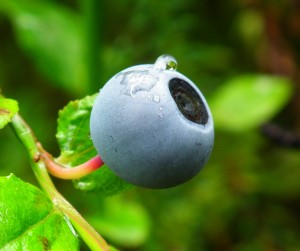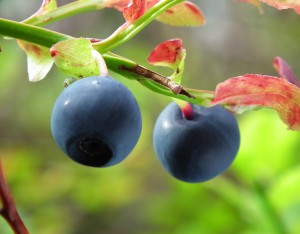Bilberry benefits of the rich nutrients that positively affect the quality of healthy Eye vision.
Bilberry benefits induce natural wellness, berries that grow in the forests of the Nordic region grow in relatively clean environments, and any berries that grow within 100 meters of the main road with traffic, should be left alone as a rule of the thumb.

Some of the most obvious bilberry benefits are that they grow naturally in the forest, and also the activity in itself to seek and forage for berries is a healthy activity in a clean environment. To spend some time during the summer months amongst Nature, it is a reflective and relaxing time, with no stress other than searching, finding and picking berries into a berry basket. Berry picking is a cultural experience because it has been a very important activity for the community for thousands of years in the Nordic region. The human need for natural healthy food and nutrition did not change even when humanity graduated from Stone Age to Bronze Age, and Bronze Age to Iron Age, and it did not even change with the industrial revolution or the coming of the Digital Age.
Bilberry benefits are here to stay as long as the environment stays clean and safe for the plants to grow.
Bilberry plant leaves are said to be healthy, they can be enjoyed with hot water as a bilberry leaf tea. The bilberry fruit seeds have lots of health benefits nutrients inside them.

Here is a list of the vitamins that bilberry fruit contain. Organic composition of the berries: 100 g of fresh berries is:
– Protein 0.67 g
– Vitamin A (RE) 7.9 lg
– Vitamin B1 0.03 mg
– Vitamin B2 0.03 mg
– Vitamin B3 0.6 mg of niasiiniekvivalentti
– Vitamin B5 or pantothenic acid 0.16 mg
– Vitamin B6 0.06 mg
– Vitamin C 44 mg
– Vitamin E (alpha-DB) 1.88 mg
– Vitamin H or biotin, 1.1 ¶ g
– Phosphorus 20 mg
– 100 mg of potassium
– Calcium 20 mg
– Cobalt <0.5 lg
– Chrome 2 lg
– Copper 78 lg
– Magnesium 9.1 mg
– Manganese 4.6 mg
– Molybdenum <10 g
– Silicon 0.5 mg
– 0.56 mg of iron
– 13 mg of sulfur
– Zinc 0.15 mg
Source: Herbosus.fi
As can be seen from this list, the bilberry fruit has a lot of different trace elements.
Bilberry fruit contains very little fruit acids. The berries contain A and B vitamin, manganese, fiber and flavonoids. They are also good as vitamin C, magnesium, and calcium sources.
Bilberry benefits also have antimicrobial tannins, which are also found in purple grapes and dark teas.
There are Carotenoids in the bilberry fruit, which are potent antioxidants that affect positively the anatomy of the Eyes. Bilberries have anthocyanosides which are potent antioxidants that strengthen blood vessels and the capillaries. They also improve red blood cells, stabilize collagen tissues such as tendons, ligaments, and cartilage and has cholesterol-lowering effects.
Researchers have found that bilberries are very effective for myopia (near-sightedness). Research shows that bilberry can help reduce or even reverse Macular Degeneration. Bilberry benefits also provide vascular support for the micro-circulation of blood to the eyes. Bilberry benefits have been shown to be a vasodilator that opens blood vessels and lowers blood pressure. I am not suggesting that that the berries have magical powers, or trying to build a religion around these bilberries, no. But they do contain natural bilberry benefits. They are unlikely to gain such cult-like following and consumption as some top brand wines and spirits on the modern day markets. Bilberry benefits won’t pack the same punch as some wines, ports, liqueurs, and spirit will, leaving a throbbing headache after indulging in the pleasures of intoxicating indulgence.
Watch a YouTube video Animation of the Bilberry Benefits: Bilberry.
